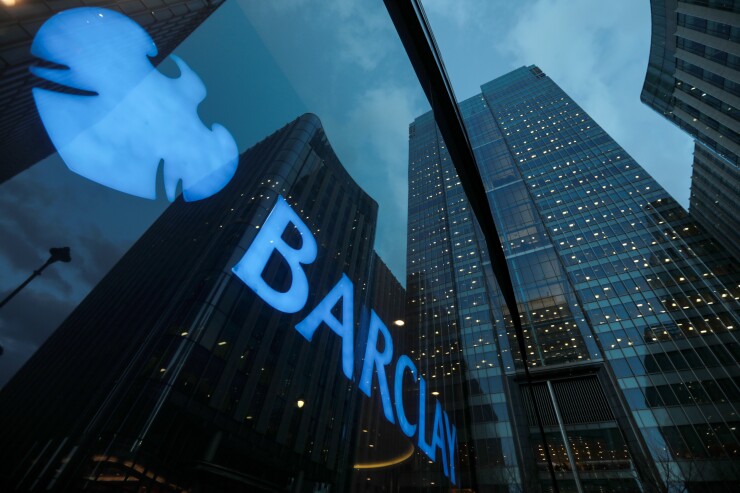A former Barclays broker lost his FINRA arbitration case but won a $100,000 reduction of his clawback in a rare positive outcome for an adviser representing himself.
Matthew Grady must pay Barclays a net $461,000 in damages and taxes after cutting out the damages due to him from his former employer, an arbitration panel in Boston ruled last week, according to a copy of the award. In an entire year of FINRA promissory note cases tracked by one expert, not one adviser was as successful as Grady.
Stocks and Puerto Rican bonds are the focus of many cases among clients, advisers and firms.

The broker responded to Barclays’ June 2015 claim of breach of promissory note by asking the arbitrators for lost compensation and other damages relating to a “breach of the covenant of good faith and fair dealing” by the firm, according to the award. He also sought interest, costs and attorney fees.
The March 29 decision awarded damages of $514,285 and a withholding tax refund of $46,825 to Barclays, which
-
The regional broker-dealer said it completed its acquisition of the British bank's U.S. wealth management unit, but it now expects that less than half of the assets under management will transfer over to the firm.
December 8 -
"I lose years of my life. They can settle, write a check and move on," says an adviser whose book of business dropped by $40 million after he alleges he was wrongfully terminated.
December 19 -
A federal judge ruled that the ex-Barclays advisor had been unfairly forced into FINRA arbitration, where a panel had ruled against him.
March 27
A spokeswoman for Barclays and the lawyer who represented the British bank both declined to comment on the case.
Grady, who left Barclays in February 2015 and now owns a Boston RIA called Millstone Wealth Partners, also declined to discuss the case.
Barclays sought over $638,000 plus interest from Grady. Yet he argued in his September 2015 counterclaim that the company’s actions had either discharged his obligations under the promissory note or cost him at least as much money as the outstanding balance on the loan.
While the nature of his claims against the firm was not immediately clear, the reduction in Barclays’ clawback certainly sets Grady apart from other advisers who have appeared “pro se,” or representing themselves.
Stifel inherited






